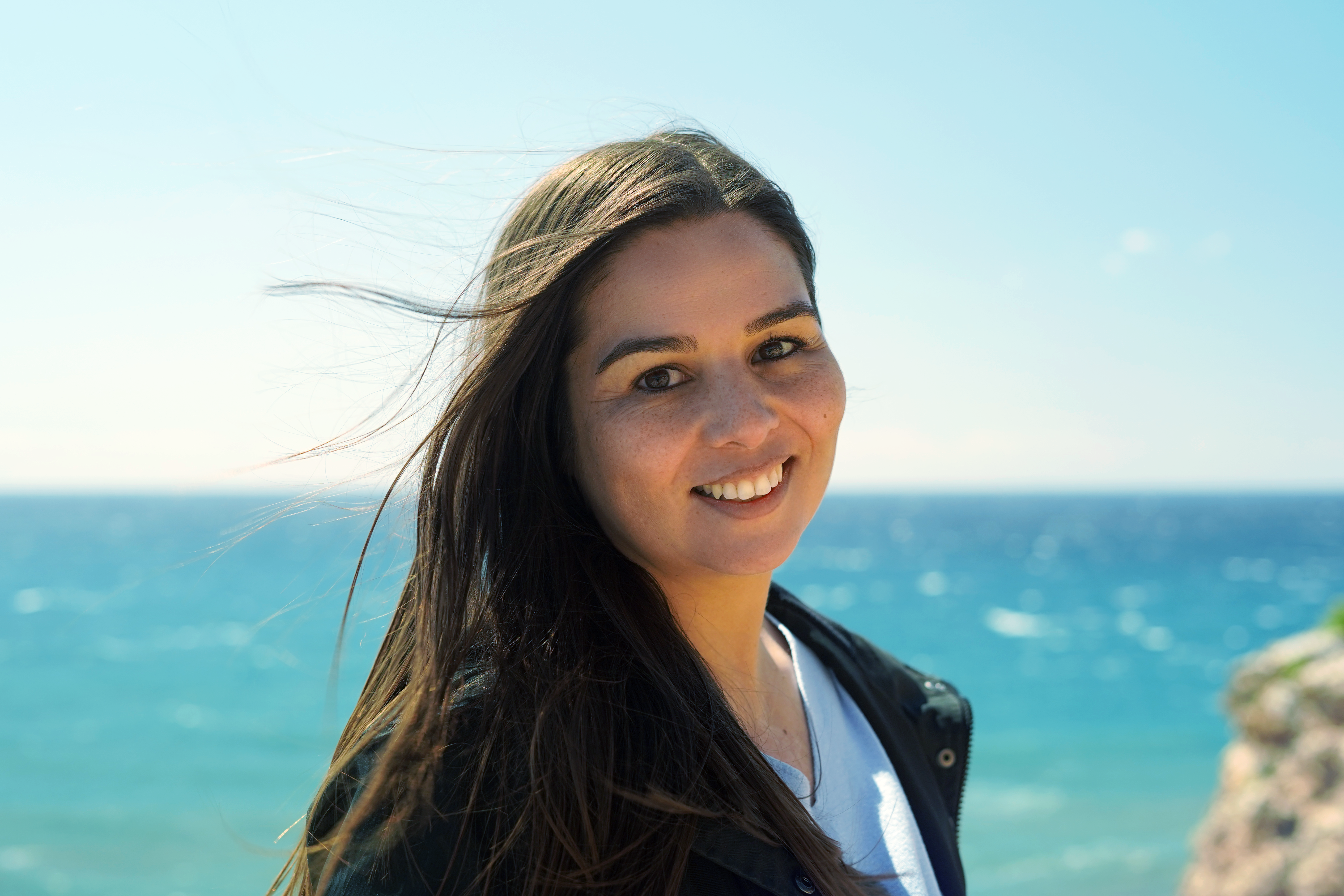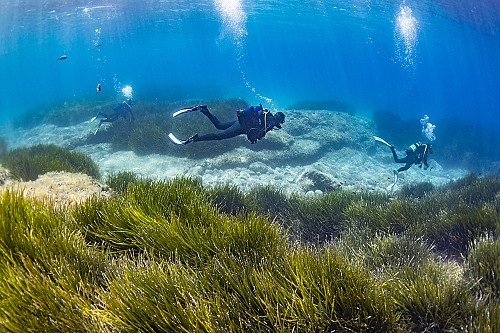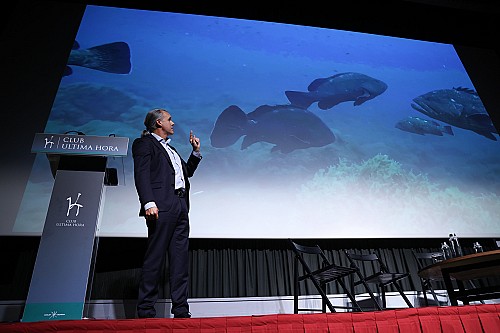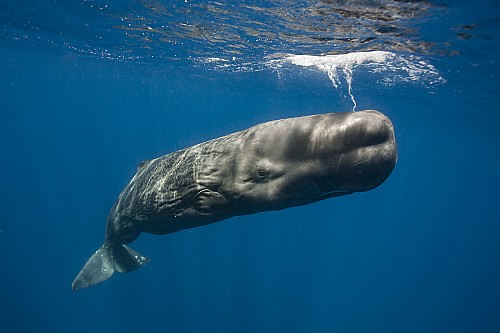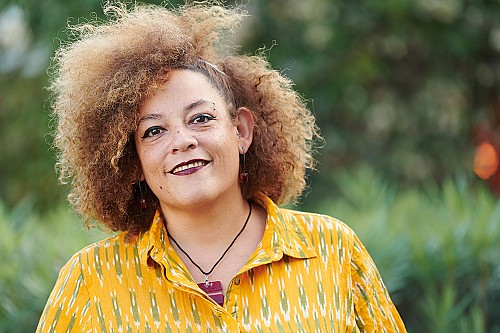Noelia Hernández has a BSc in Marine Sciences and a PhD in Marine Ecology. During her PhD she studied how different environmental conditions and/or anthropogenic causes influence the population dynamics of marine predators. After finishing her PhD, Noelia moved to Costa Rica, where she was the Scientific Director of an NGO called Osa Conservation. Her work in recent years has focused on the management and implementation of different marine conservation projects to protect marine species and habitats. In 2020, Noelia was awarded a National Geographic Explorer Fellowship for her work to help create a new marine protected area in the Pacific. She currently works as Conservation Director at Asociación Vellmarí, leading several projects aimed at recovering the Mediterranean, such as creating marine protected areas, restoring Posidonia oceanica, conserving coral habitats, and protecting endangered species.
What is the study you are carrying out for Marilles?
It is a blue economy study that is being carried out in partnership with Asociación Vellmarí, IbizaPreservation, National Geographic's Pristine Seas initiative, and Marilles Foundation. The aim is to quantify and make visible the economic benefits generated in Ibiza and Formentera, thanks to the islands' marine environmental value.
With this study, we want to demonstrate the importance of marine protection of the islands, not only from an environmental point of view, but also in the quality of life and economy of citizens and businesses. If we improve marine protection and commit to a responsible blue economy, we will continue to generate employment and profits through sustainability. On the contrary, if we do not make sustainable use of the marine resources we have, or if we do not take care of our marine environment, sooner or later not only will the natural heritage be damaged, but also the economy, especially the fishing and tourism sectors.
What benefits does the sea and the coast bring to the economy of Ibiza and Formentera?
Thanks to the sea and coastal areas, different ecosystem services are generated, benefitting the economy, our health, and our quality of life. Some of these benefits have a direct impact on the economy and others have an indirect impact that is more difficult to calculate. For example, there are the so-called regulating services providing coastal protection or carbon sequestration. If this system collapses and stops functioning properly, there will be negative consequences, both for nature and the economy. I often give as an example the case of the Mar Menor and how its deterioration has affected the fishing sector, tourism, and even the health and quality of life of the people who live there, as well as the additional expenditure and investment that is being made to try to recover the area. I explain this because it is a complex issue and we must not forget that everything is related; we must not only think about the economic part, but we must also consider the value of our legacy, culture, and existence.
Answering the question more specifically, the main economic benefits in the Pitiusas come especially from recreational activities (excursions, pleasure boats, visits to beaches, underwater activities, kayaking, etc.), maritime transport, and marine resources for food (professional fishing and recreational fishing). Posidonia oceanica is also of great economic value in the islands because it improves water quality, prevents coastal erosion, and captures CO2.
Why is it important to have an effective network of marine protected areas?
We often seem to forget that there are no borders in the sea, but it is quite the opposite, there are areas apparently far apart on the map that have a high physiographic and oceanographic connectivity. Having an effective network of marine protected areas allows us to promote the creation of marine corridors and improve the conservation of highly migratory species, many of which are threatened.
For the same reason, it is also very important that there is dialogue and cooperation to improve the management of all protected areas, both nationally and internationally. Sometimes, management depends on different institutions and the competence may be at regional or national level. If we want to guarantee protection and maintenance in the long term, we must work in a unified way and with good communication.
What do you understand by sustainable tourism and why is it more necessary than ever?
For me, sustainable tourism is tourism that is committed to the conservation of a natural and/or cultural environment over the years. It is tourism that seeks to have the minimum possible impact on the environment and local culture, so that it can continue to develop in the future. It is also important that tourism generates new employment and income opportunities for the local population, so that it can be an alternative to other business models that have a high impact.
Tourism is one of the main economic sectors both in Spain and in many other countries, but if we do not change the type of tourism we have today to a quality business model that is responsible and respectful of the environment, a what will happen is that we will "die of success" and sooner or later the "goose that lays the golden eggs" will come lay no more. More and more of us are travelling, with much greater ease in moving to different places and having a greater and greater impact on ecosystems. However, there are still not many businesses and/or places that seek a balance between the environmental, sociocultural, and economic aspects; only the economic aspect is taken into account. But as I explained before, everything is related. If the ecosystem deteriorates, the ecosystem services and the benefits they provide, including for the tourism sector, will fail.
Tourism is not incompatible with conservation. On the contrary, it can be a great opportunity to generate jobs and income and at the same time offer economic opportunities to protect the habitat, as is already happening in many parts of the world with nature tourism. Of course, it has to be done in a responsible and well-managed way.
What is your personal connection to the sea and when was it born?
I was born and raised in Ávila, but since I was very young I dreamed of the marine world. Everyone always asked me how it was possible for me to have such a passion and devotion for the sea when I was born so far from the coast but watching marine documentaries everything I saw fascinated me and seemed wonderful. I'm not even aware of when I started to say that I loved the sea and wanted to be a marine biologist; it's something I've always remembered. When I had to decide on a career, I was very clear that I would study marine biology or marine sciences and I decided to go to Cadiz to study the latter.
What I enjoy most about the sea is diving and being surrounded by marine life. I feel a great sense of happiness when I am in the water and I see big schools of fish, or I meet different marine species, or when I see unique underwater landscapes or even when I am at the surface and whales or dolphins appear. The sea is also very calming for me.
Quick quiz for sea lovers
A book: I will say The Ocean World of Jacques Cousteau, as it is the oldest book in my collection.
An image that evokes the Balearic Islands: Turquoise waters.
A marine species: It is difficult to choose just one or even two, but I will say the giant oceanic manta ray and the orcas.
A person or organisation of reference: Enric Sala.
A beach: Also difficult to choose just one; Calo des Moro (Mallorca) in low season.
Optimistic, realistic, or pessimistic? Optimistic but realistic.
Marilles in the media
- 02/02/2023 Europa Press: "Fundaciones de las Islas se alían contra la pesca ilegal en el proyecto 'Calant Xarxes'"
- 18/12/2022 Diario de Ibiza: "2023 y los retos: Ibiza resiliente frente al cambio climático"
- 03/10/2022 Cadena SER: "El cuidado de los océanos, protagonista del Eco Talk de LOS40 en Son Marroig"

